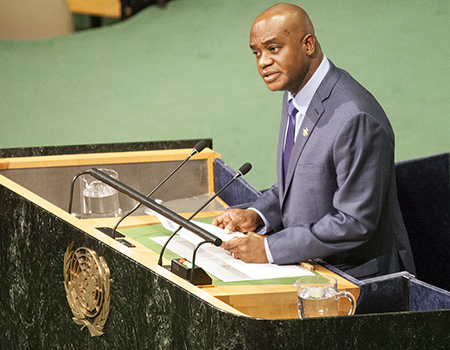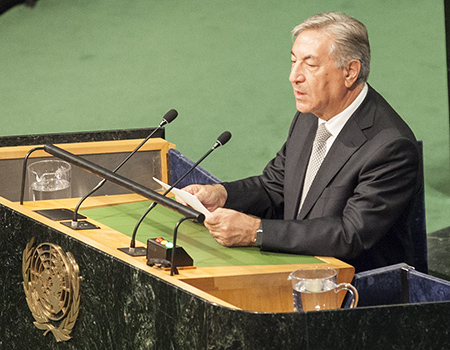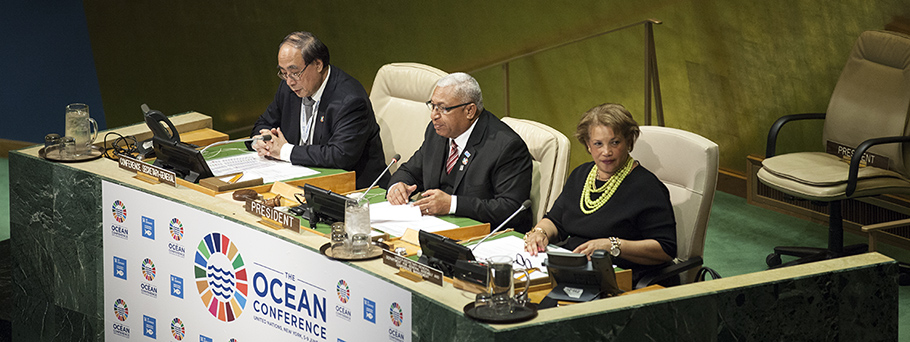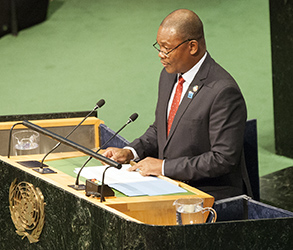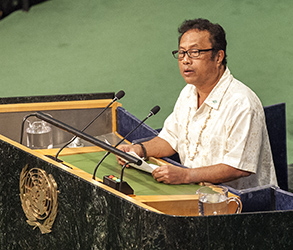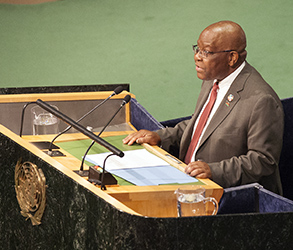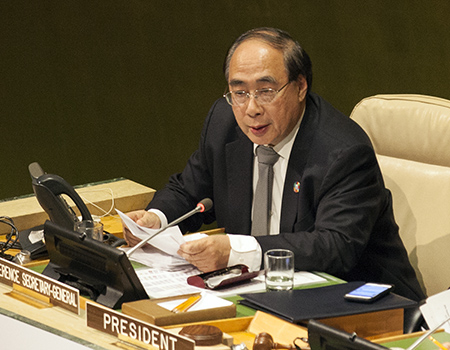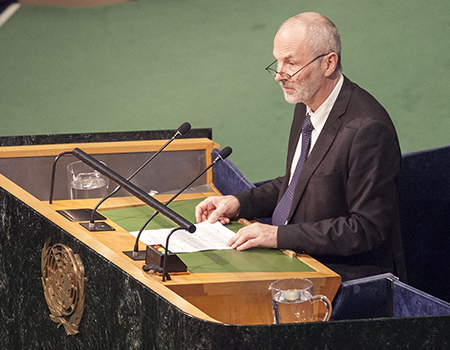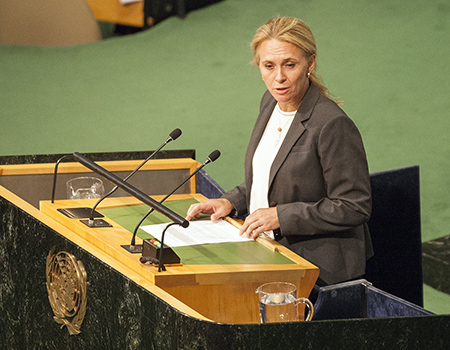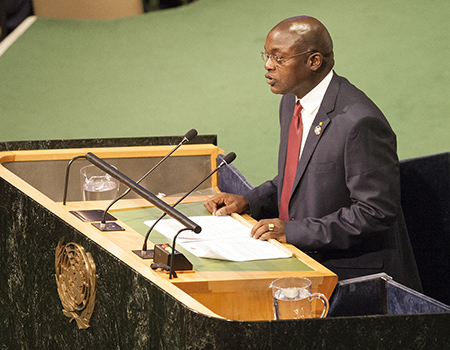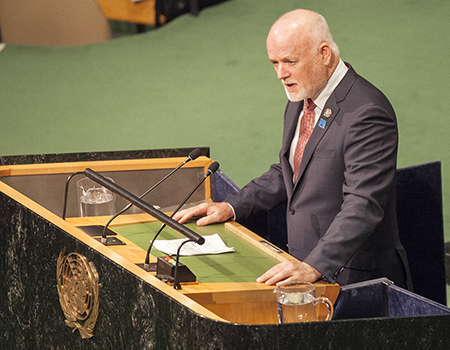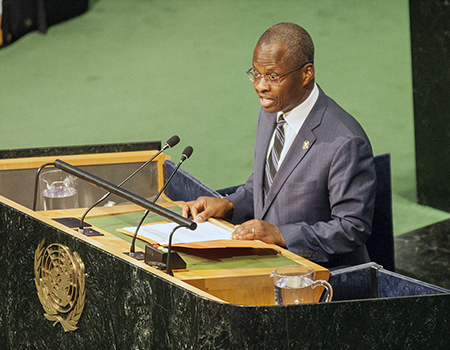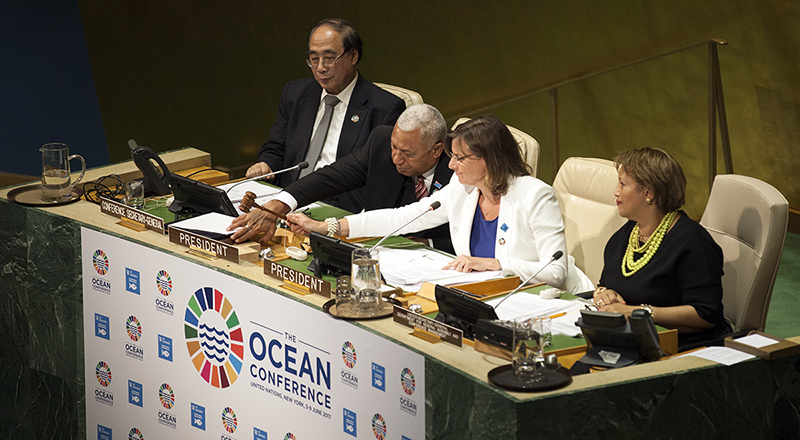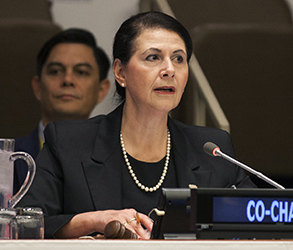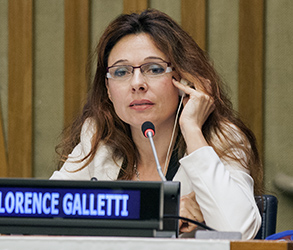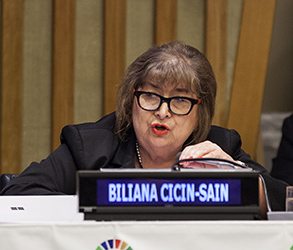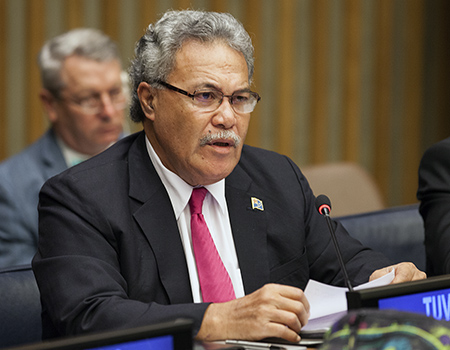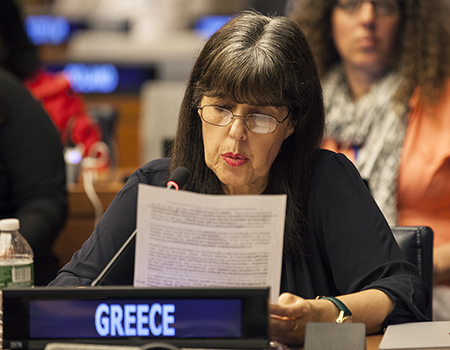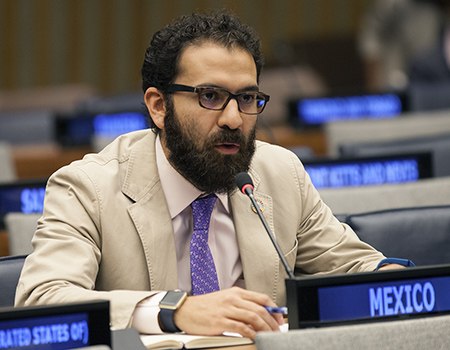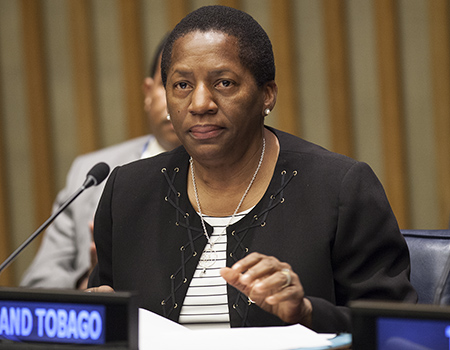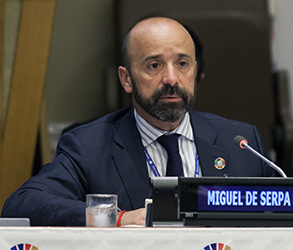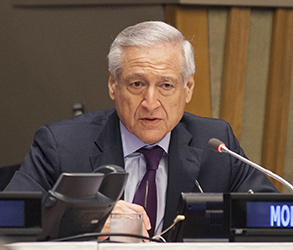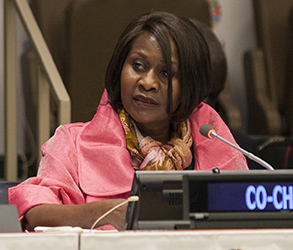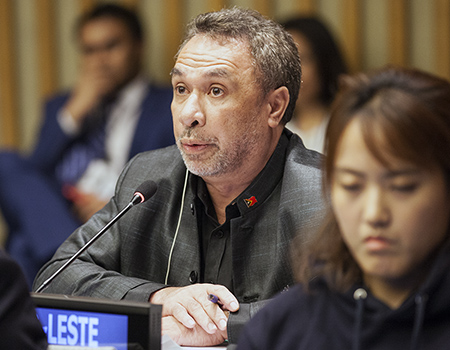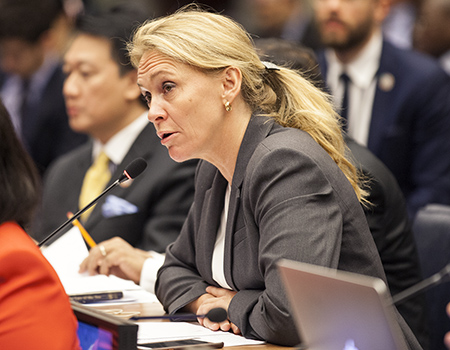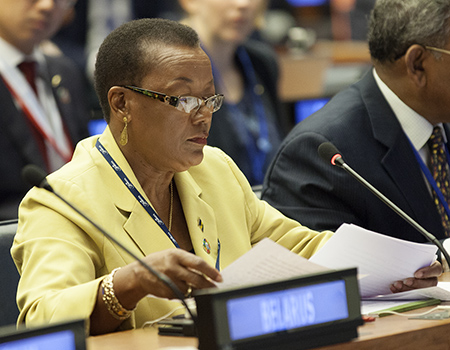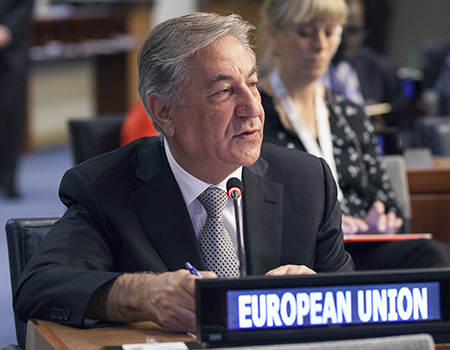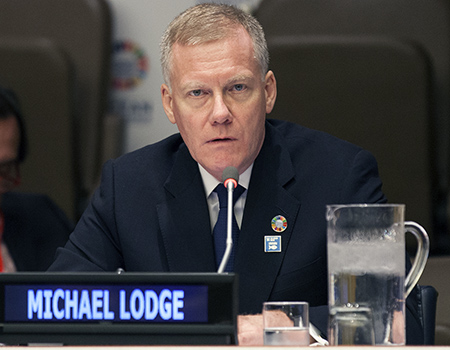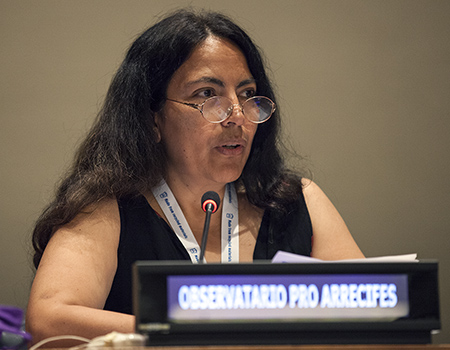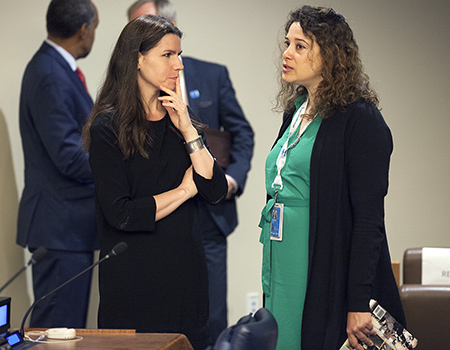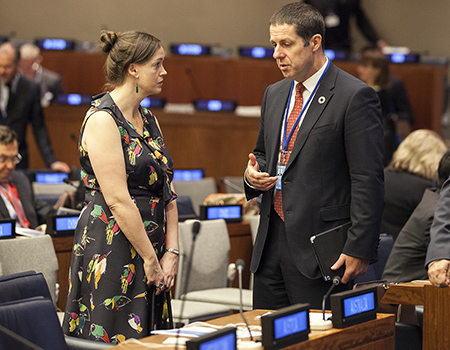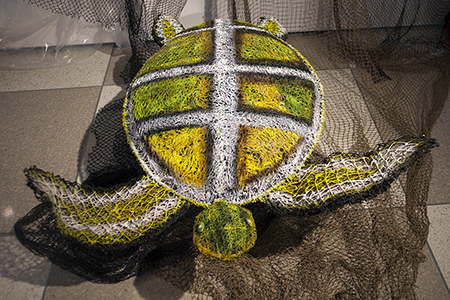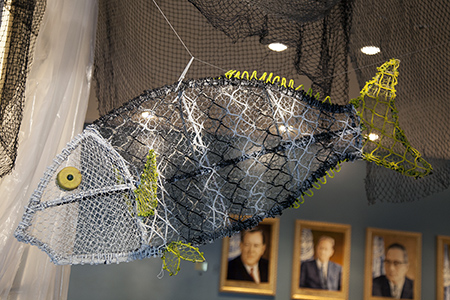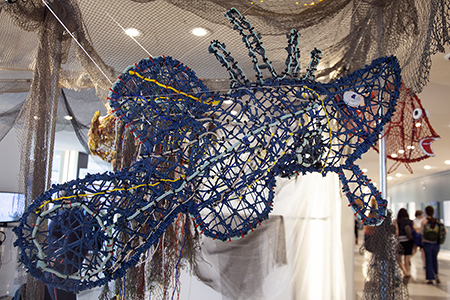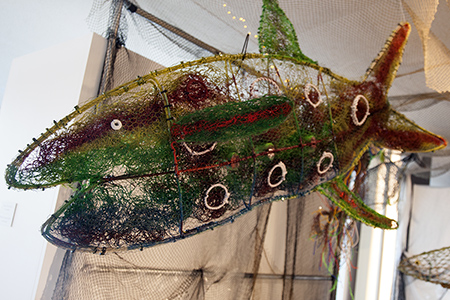Summary
On Friday morning, a partnership dialogue focused on enhancing the conservation and sustainable use of oceans and their resources by implementing international law as reflected in the UN Convention on the Law of the Sea (UNCLOS). Participants highlighted the key role of effective implementation of UNCLOS in achieving SDG 14; and challenges regarding universal participation, and uneven and ineffective implementation and enforcement.
Plenary continued with the general debate; heard reports from the partnership dialogues; and adopted the conference report and the Call for Action as agreed during the intergovernmental consultations. The US: noted it did not support reference to technology transfer, reaffirming that strong protection and enforcement of intellectual property rights provides the incentives needed to foster innovation; disassociated itself from the call to accelerate work to complete World Trade Organization (WTO) negotiations on fisheries subsidies with special and differential treatment for developing countries and LDCs, explaining that WTO independence must be respected; and reiterated the recent announcement of his country's withdrawal from the Paris Agreement on climate change. France welcomed the support for the Paris Agreement indicated by its ratification by a majority of the world. The Russian Federation distanced itself from language on WTO negotiations on fisheries subsidies, highlighting the complexity and sensitive nature of the topic and the need to address it under the WTO. Egypt registered its reservation on language implying that invasive alien species (IAS) are due solely to human activities, noting it is factually incorrect as there are other causes, including climate change. The EU emphasized the universal and unified character of UNCLOS as the legal framework for all ocean-related activities.
General Assembly President Peter Thomson, Fiji, affirmed that the conference: generated broad momentum for implementing all the SDGs; showed that ocean and climate health are “two sides of the same coin”; spurred WTO negotiators to address harmful subsidies; and emphasized the role of small-scale fisheries in sustainable blue economy. Co-President Josaia Voreqe (Frank) Bainimarama, Fiji, noted that voluntary commitments doubled during the week counting: 44% of commitments from governments, 19% from NGOs, 9% from the UN and 9% from the private sector; with the highest number of commitments in the North Atlantic and South Pacific, relating to marine ecosystems, pollution and science. Co-President Isabella Lövin, Sweden, congratulated delegates, in particular Fiji, for placing the ocean at the center of the political agenda as a matter of human survival, in light of the combined pressures of marine litter, ocean acidification and overfishing. She welcomed Kenya and Portugal’s offers to host the next conference in 2020, and called for a “strong home for the ocean at the UN” and leadership by the UN Secretary-General to drive SDG 14 forward. She officially gaveled the conference to a close at 5:44 pm, following which, delegates participated in a cultural ceremony to close the conference.
IISD Reporting Services, through its Earth Negotiations Bulletin (ENB) Meeting Coverage, has provided daily reports and daily web coverage, and has provided a summary and analysis report in HTML and PDF.
Photos by IISD/ENB | Mike Muzurakis
For photo reprint permissions, please follow instructions at our Attribution Regulations for Meeting Photo Usage Page
Plenary Session
Luis Gilberto Murillo, Minister of Environment and Sustainable Development, Colombia
Karmenu Vella, European Commissioner for Environment, Maritime Affairs and Fisheries of the European Union
View of the dais during the plenary session
Agostinho Mondlane, Minister of the Sea, Inland Waters and Fisheries, Mozambique
President Tommy Esang Remengesau, Palau
Necton Mhura, Permanent Representative to the UN, Malawi
Wu Hongbo, Under-Secretary-General, UN Department of Economic and Social Affairs (DESA)
Sven Jürgenson, Permanent Representative to the UN, Estonia
Thorgerður Katrín Gunnarsdóttir, Minister for Fisheries and Agriculture, Iceland
Oumar Guèye, Minister of Fisheries and Maritime Economy, Senegal
Peter Thomson, President of the General Assembly of the United Nations, Fiji
Arthur Andambi, Rapporteur, Kenya
Isabella Lövin, Minister for International Development Cooperation and Climate and Deputy Prime Minister, Sweden, gaveling the meeting to a close.
Partnership dialogue 7: Enhancing the conservation and sustainable use of oceans and their resources by implementing international law as reflected in the United Nations Convention on the Law of the Sea
Concetta Fierravanti-Wells, Minister for International Development and the Pacific, Australia
Florence Galletti, Director of Research, Law of the Sea and Environmental Law, French National Research Institute for Development (IRD)
Biliana Cicin-Sain, President, Global Ocean Forum
Prime Minister Enele Sosene Sopoaga, Tuvalu
Anastasia Strati, Greece
Pablo Arrocha Olabuenaga, Mexico
Pennelope Althea Beckles, Permanent Representative to the United Nations, Trinidad and Tobago
Miguel de Serpa Soares, Under-Secretary-General for Legal Affairs and UN Legal Counsel
Heraldo Muñoz, Minister of Foreign Affairs, Chile
Judy Wakhungu, Cabinet Secretary for Environment and Regional Development Authorities, Kenya
Hernâni Coelho, Minister of Foreign Affairs, Timor Leste
Thorgerður Katrín Gunnarsdóttir, Minister for Fisheries and Agriculture, Iceland
Maxine McClean, Minister of Foreign Affairs, Barbados
Karmenu Vella, European Commissioner for Environment, Maritime Affairs and Fisheries of the European Union
Michael Lodge, Secretary-General, International Seabed Authority
Nohora Galvis, Director, Observatorio Pro Arrecifes, Colombia
Charlotte Salpin, UN Division for Ocean Affairs and the Law of the Sea (UNDOALOS), with Elisa Morgera, IISD Reporting Services
Participants networking
